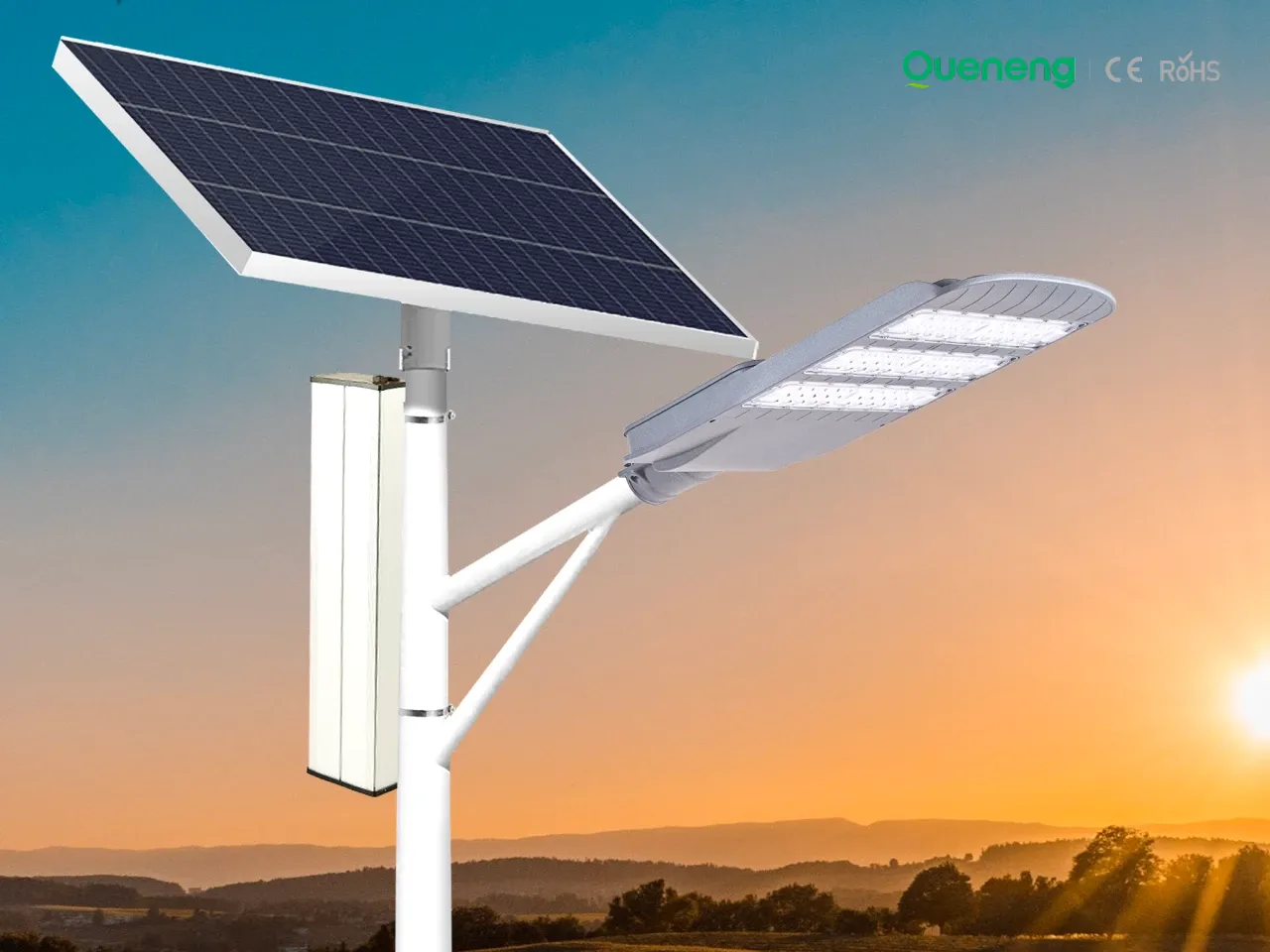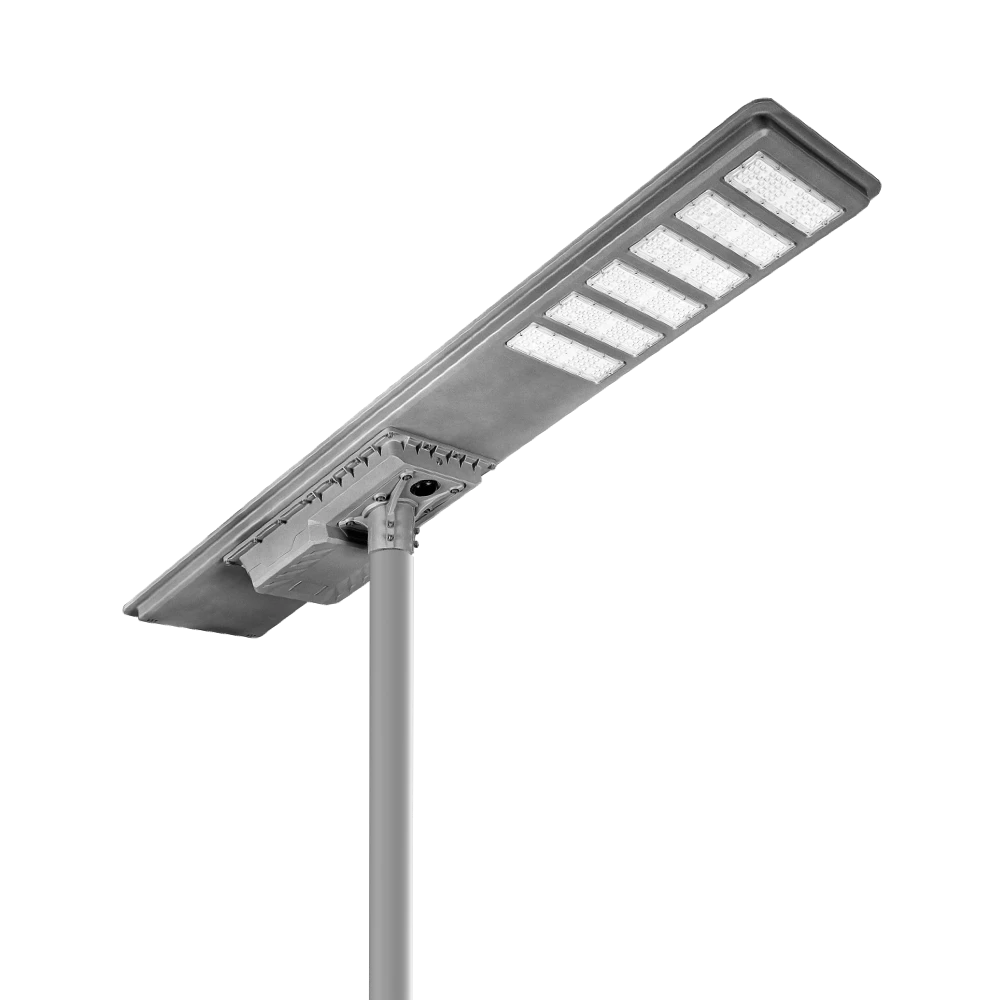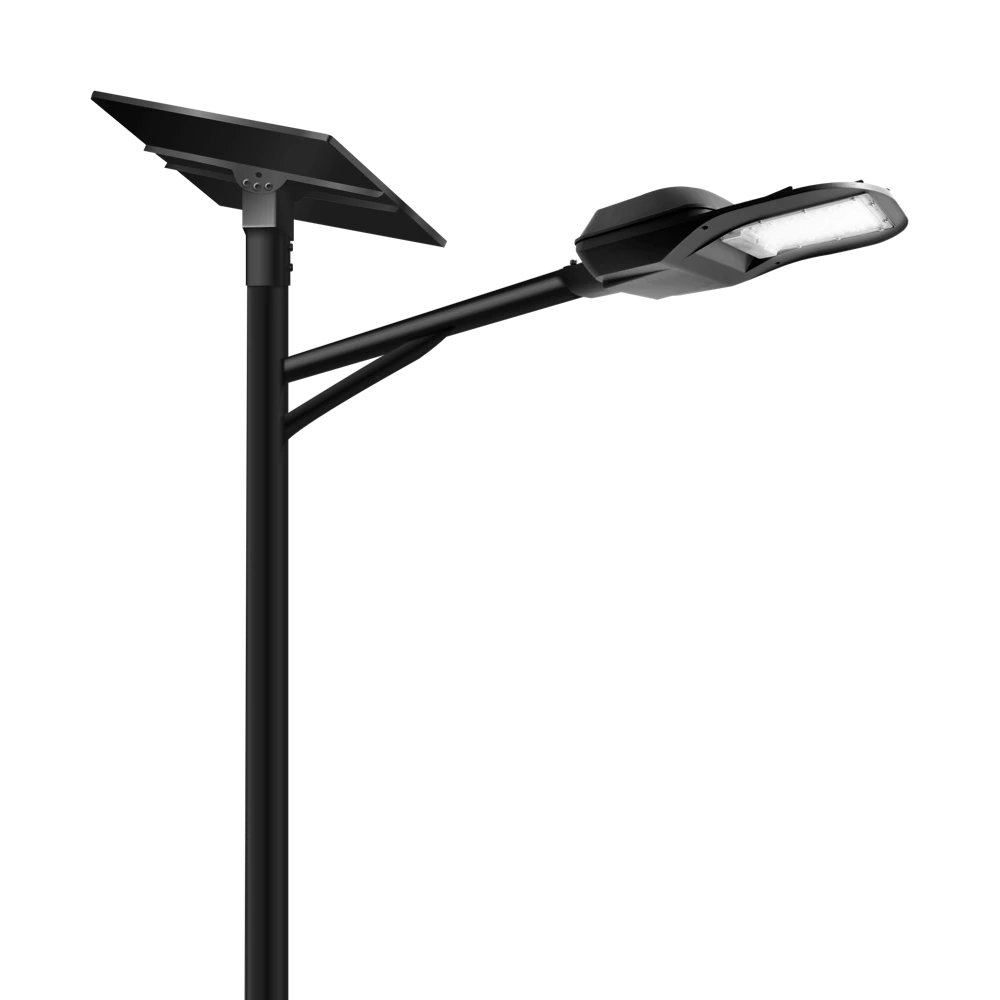OEM solar LED lights Nigeria | Insights by Quenenglighting
Navigating the Nigerian Market: Why OEM Solar LED Lights are Your Smartest Investment
Nigeria, Africa's largest economy, faces persistent power deficits, with only about 55% of its population having access to reliable grid electricity. This significant energy gap has fueled a robust and rapidly expanding off-grid solar market. Reports from industry bodies like GOGLA indicate strong growth, with millions of solar products being sold annually. For businesses, government agencies, and contractors looking to deploy large-scale lighting solutions – from streetlights to security lighting – OEM (Original Equipment Manufacturer) solar LED lights offer a compelling advantage.
Opting for OEM allows for cost-effectiveness due to bulk manufacturing, greater customization to meet specific project requirements (e.g., specific lumen output, pole height, or smart features), and the ability to brand the products as your own. This approach not only provides flexibility but also ensures that solutions are specifically tailored to the unique environmental and operational challenges in Nigeria, leading to better long-term performance and return on investment.
Beyond Lumens: What Critical Technical Specifications Ensure Durability in Nigeria's Climate?
When procuring OEM solar LED lights for Nigeria, simply looking at lumen output isn't enough. The harsh climate, characterized by high temperatures, dust, and occasional heavy rainfall, demands specific technical considerations for durability and sustained performance:
- Battery Technology: LiFePO4 (Lithium Iron Phosphate) is Paramount. Unlike conventional lead-acid or even other lithium-ion chemistries, LiFePO4 batteries offer superior thermal stability, a longer cycle life (typically 2,000 to 6,000 charge/discharge cycles compared to 500-1,000 for Li-ion), and better depth of discharge tolerance. This translates to significantly longer battery lifespan and consistent performance, even in Nigeria's heat, reducing total cost of ownership.
- Solar Panel Efficiency and Sizing: High-efficiency monocrystalline silicon panels (typically 20-23% efficiency) are recommended. Crucially, the panel should be adequately sized to ensure sufficient charging even on cloudy days, accounting for Nigeria's solar irradiance levels which average around 4.5 – 6.5 kWh/m²/day depending on the region.
- Charge Controller: MPPT (Maximum Power Point Tracking). An MPPT controller is essential for maximizing power harvest from the solar panel. It can improve charging efficiency by up to 30% compared to simpler PWM (Pulse Width Modulation) controllers, ensuring batteries are optimally charged and extending their life.
- LED Chip Quality & Efficiency: Opt for lights using reputable LED chips (e.g., Philips Lumileds, Osram, Cree). These offer higher luminous efficacy (typically 150-180 lumens per watt), better color rendition, and a longer lifespan (50,000+ hours).
- IP Rating and Material Durability: A minimum IP65 rating is crucial for dust and water ingress protection. For streetlights, IP66 or even IP67 offers superior protection. The fixture material should be robust, such as die-cast aluminum with a corrosion-resistant coating, capable of withstanding harsh outdoor conditions.
- Operating Temperature Range: Ensure the system is designed to operate reliably within Nigeria's temperature extremes, typically ranging from 25°C to 40°C, and sometimes higher.
Quality Control & Certification: How to Vet Your OEM Supplier for Reliable Performance?
For bulk procurement, quality assurance is non-negotiable. A reputable OEM supplier should demonstrate a rigorous quality control process and hold relevant certifications:
- International Certifications: Look for suppliers with ISO 9001 (Quality Management System) certification. Product-specific certifications such as CE (Conformité Européenne) and RoHS (Restriction of Hazardous Substances) are standard for electronic products and indicate compliance with European safety and environmental standards. TÜV or UL certifications offer additional assurances for product safety and performance.
- Testing and Reports: Request detailed test reports, including IES (Illuminating Engineering Society) files for photometric performance, salt spray tests for corrosion resistance, vibration tests for mechanical stability, and temperature cycling tests for thermal reliability. Factory acceptance tests (FAT) are also critical for large orders.
- Component Sourcing: Inquire about the origin and quality of critical components (LED chips, batteries, controllers). A transparent supplier will readily provide this information, often using components from globally recognized brands.
- Warranty and Support: A comprehensive warranty (typically 3-5 years for the entire system) reflects the manufacturer's confidence in their product. Understand the terms, including coverage for components like batteries, and the process for claims.
- Factory Audits: For significant investments, conducting a factory audit or engaging a third-party inspection service to verify production capabilities, quality processes, and ethical labor practices is highly recommended.
Demystifying Logistics: What are the Real Costs and Challenges of Importing Solar Lights to Nigeria?
Importing bulk solar LED lights into Nigeria involves specific logistical and financial considerations:
- Shipping Methods and Lead Times: For large volumes, sea freight is the most cost-effective option, though transit times can range from 4 to 6 weeks from Asian ports to Nigerian ports (e.g., Apapa or Tin Can Island). Air freight is faster but significantly more expensive, typically reserved for urgent or smaller consignments.
- Customs Duties and Taxes: While Nigeria has, in recent years, shown initiatives to reduce barriers for renewable energy imports (e.g., the removal of the 5% import duty on solar panels under the Finance Act), other taxes still apply. A 7.5% Value Added Tax (VAT) is standard, along with potential administrative charges, port levies, and clearing agent fees. It's crucial to consult with a local Nigerian customs broker for the most current and accurate information on specific H.S. codes for solar lighting products.
- Documentation: Accurate and complete documentation (commercial invoice, packing list, bill of lading/airway bill, certificate of origin, SONCAP certificate for product conformity) is vital to avoid delays and demurrage charges at the port.
- Local Expertise: Partnering with experienced Nigerian clearing agents and logistics companies is invaluable. They can navigate the complexities of local customs procedures, port operations, and inland transportation.
Long-Term Assurance: What After-Sales Support is Essential for Sustainable Solar Projects?
Solar lighting projects are long-term investments. Robust after-sales support from your OEM supplier is crucial for ensuring the sustainability and continued performance of your deployed systems:
- Warranty Claims and RMA (Return Merchandise Authorization): A clear and efficient process for handling warranty claims and returns is essential. This includes understanding who bears shipping costs for returns or replacements.
- Spare Parts Availability: Batteries and controllers are typically the components that might require replacement over the system's lifetime. Ensure the OEM supplier guarantees the availability of spare parts for at least 5-10 years post-purchase, and inquire about their pricing structure for these parts.
- Technical Support: Access to technical support for troubleshooting, diagnostic assistance, and guidance on maintenance is critical. This could be via email, phone, or even remote diagnostic tools for smart solar systems.
- Training: For large-scale projects, training local teams on basic installation, operation, and maintenance can significantly extend the lifespan of the lights and reduce reliance on external support.
- Upgradability: Inquire about the potential for future upgrades, such as smart city integration or IoT capabilities, especially for long-term urban development projects.
Quenenglighting's Advantage in OEM Solar LED Lights
As a dedicated OEM/ODM solar lighting manufacturer, Quenenglighting understands the unique demands of the Nigerian market. We leverage:
- High Quality Components: Utilizing top-tier LiFePO4 batteries, high-efficiency monocrystalline solar panels, branded LED chips (e.g., Philips Lumileds, Osram), and advanced MPPT controllers, ensuring peak performance and longevity in challenging climates.
- Rigorous Quality Control: Our manufacturing process adheres to ISO 9001 standards, with products holding CE and RoHS certifications. We conduct comprehensive in-house and third-party testing, providing detailed reports like IES files and salt spray test results.
- Customization Expertise: From lumen output and pole design to integrated smart features (IoT, remote monitoring), we offer extensive customization to perfectly match your project's specifications and branding.
- Global Logistics Support: With experience in international shipping, including to African markets, we can provide guidance on logistics, documentation, and work with your preferred clearing agents to ensure smooth delivery.
- Comprehensive After-Sales: We stand behind our products with a robust warranty (typically 3-5 years) and guarantee the long-term availability of spare parts and dedicated technical support, ensuring your investment continues to perform for years to come. Partner with Quenenglighting for reliable, high-performance OEM solar LED lighting solutions for your Nigerian projects.

Have more questions about our products or services?
The latest hot news you might like




A comprehensive 2026 guide to solar street light pricing. Covers commercial installation costs, LiFePO₄ battery trends, smart IoT features, and a detailed ROI comparison against traditional grid lighting.
FAQ
Solar Street Light Luhui
Can Luhui solar street lights be used in areas with limited sunlight?
Yes, Luhui solar street lights are equipped with high-efficiency solar panels that can charge even in low light conditions, providing reliable illumination, even in areas with limited or intermittent sunlight.
Solar Street Light Luhao
Is the Luhao solar street light weatherproof?
Yes, the Luhao solar street light is designed to withstand all weather conditions. It is made with durable, weather-resistant materials that can handle rain, snow, heat, and cold, ensuring reliable performance year-round.
Solar Street Light Lufei
How long does it take to install a solar street light?
Installation typically takes 1-2 hours, depending on the complexity of the setup. No external wiring is required, which makes installation faster and simpler compared to traditional street lighting.
Solar Street Light Luzhou
Are Luzhou solar street lights suitable for urban and residential areas?
Yes, Luzhou solar street lights are versatile and suitable for both urban and residential settings. They can be installed along streets, pathways, parks, and other public spaces, providing reliable, energy-efficient lighting wherever it's needed.
Solar Street Light Luda
What makes Luda solar street lights high-efficiency and eco-friendly?
Luda solar street lights feature high-efficiency solar panels that maximize energy conversion even in low sunlight conditions, ensuring optimal performance throughout the day. The use of energy-efficient LED bulbs minimizes electricity consumption while delivering bright, reliable illumination. This combination of features reduces the overall carbon footprint and makes them an eco-friendly choice for outdoor lighting.
Battery Types and Applications
What batteries will dominate the battery market?

Queneng’s Solar Street Lights are designed to provide reliable, energy-efficient lighting for streets, parks, and other outdoor spaces.

Introducing the Luqing Solar Street Light by Queneng, Efficient LED lighting powered by solar energy is perfect for illuminating outdoor areas. Harness the power of solar energy for sustainable, reliable street lighting. Ideal for eco-friendly, cost-effective outdoor illumination solutions.

Queneng's Luxian Reliable Solar Street Light offers energy-saving LED lighting for outdoor use. This durable, solar-powered street light provides reliable illumination, reducing energy costs and environmental impact. A perfect solution for sustainable outdoor lighting.

The Solar Streetlights of Luhao for Municipalities are designed to deliver reliable, energy-efficient, and cost-effective public lighting solutions. Equipped with advanced LED technology, durable lithium batteries, and high-efficiency solar panels, these streetlights provide consistent illumination for roads, parks, residential areas, and government projects.

Queneng's Luqiu Innovative Solar Street Light offers energy-saving, durable outdoor lighting. This solar power street light provides a reliable and eco-friendly solution for illuminating your streets and pathways.

If you would like more information about Queneng solar lighting solutions, please send us a message by filling out the form below. Our professional team will get back to you within 24 hours!
Rest assured that your privacy is important to us, and all information provided will be handled with the utmost confidentiality.
Schedule a Meeting

Book a date and time that is convenient for you and conduct the session in advance.
Have more questions about our products or services?





















